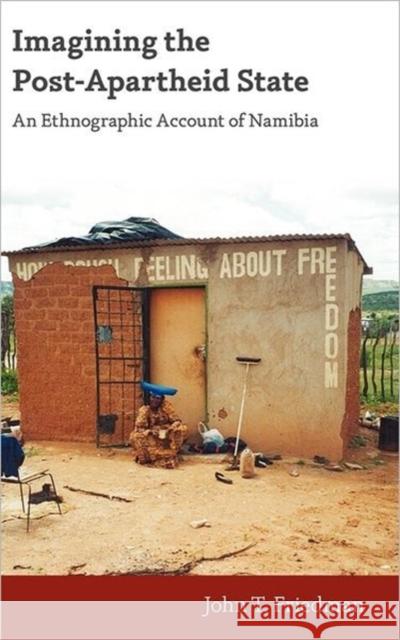Imagining the Post-Apartheid State: An Ethnographic Account of Namibia » książka
Imagining the Post-Apartheid State: An Ethnographic Account of Namibia
ISBN-13: 9780857450906 / Angielski / Twarda / 2011 / 324 str.
Imagining the Post-Apartheid State: An Ethnographic Account of Namibia
ISBN-13: 9780857450906 / Angielski / Twarda / 2011 / 324 str.
(netto: 483,13 VAT: 5%)
Najniższa cena z 30 dni: 498,70
ok. 22 dni roboczych.
Darmowa dostawa!
"An original and thought-provoking study...The book's aim to write an ethnography of the State raises seminal issues of much broader interest to African studies and anthropology in general. Moreover, the book is well structured and well written, combining vivid ethnography with innovative theoretical considerations which are well positioned in an overview of successive trends in political anthropology...This makes the book of direct interest not only to Africanists or anthropologists, but also to social scientists in general (notably political scientists) and to everybody interested in the unsettling aspects of the role of the State in present-day Africa." - Peter Geschiere, University of Amsterdam In northwest Namibia, people's political imagination offers a powerful insight into the post-apartheid state. Based on extensive anthropological fieldwork, this book focuses on the former South African apartheid regime and the present democratic government; it compares the perceptions and practices of state and customary forms of judicial administration, reflects upon the historical trajectory of a chieftaincy dispute in relation to the rooting of state power and examines everyday forms of belonging in the independent Namibian State. By elucidating the State through a focus on the social, historical and cultural processes that help constitute it, this study helps chart new territory for anthropology, and it contributes an ethnographic perspective to a wider set of interdisciplinary debates on the State and state processes.
"An original and thought-provoking study...The books aim to write an ethnography of the State raises seminal issues of much broader interest to African studies and anthropology in general. Moreover, the book is well structured and well written, combining vivid ethnography with innovative theoretical considerations which are well positioned in an overview of successive trends in political anthropology...This makes the book of direct interest not only to Africanists or anthropologists, but also to social scientists in general (notably political scientists) and to everybody interested in the unsettling aspects of the role of the State in present-day Africa." · Peter Geschiere, University of AmsterdamIn northwest Namibia, peoples political imagination offers a powerful insight into the post-apartheid state. Based on extensive anthropological fieldwork, this book focuses on the former South African apartheid regime and the present democratic government; it compares the perceptions and practices of state and customary forms of judicial administration, reflects upon the historical trajectory of a chieftaincy dispute in relation to the rooting of state power and examines everyday forms of belonging in the independent Namibian State. By elucidating the State through a focus on the social, historical and cultural processes that help constitute it, this study helps chart new territory for anthropology, and it contributes an ethnographic perspective to a wider set of interdisciplinary debates on the State and state processes.











